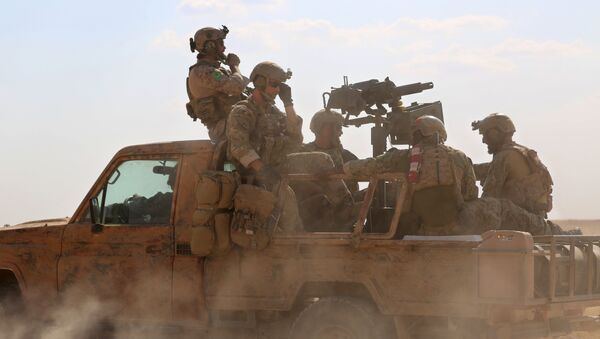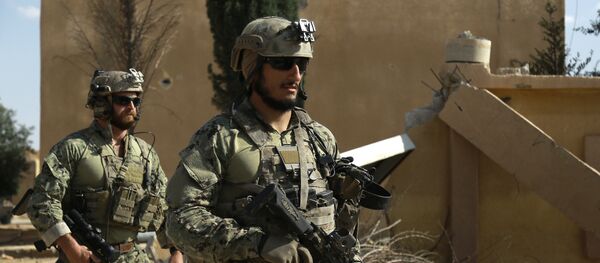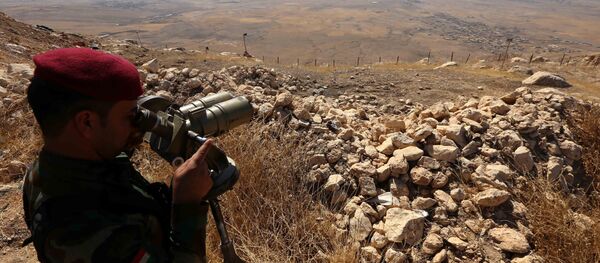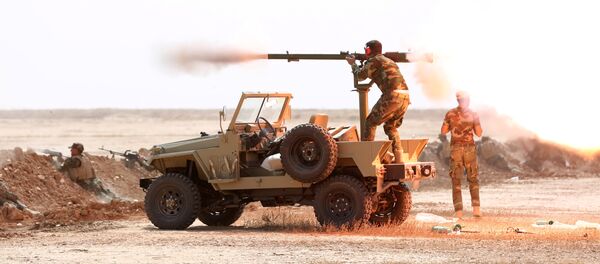The next US administration should determine what America's interests in the Syrian civil war are, Antoun Issa, a US-based Lebanese-Australian journalist, notes.
"The calls for US military action against Syrian government forces have become more vociferous in recent weeks… The question advocates of US military action need to ask and answer is: how is it in America's national interest to go to war against the Syrian government, and risk direct confrontation with a great power such as Russia?" Issa points out in his recent article for The National Interest.
Issa notes that the Syrian war does not pose a threat to the US, nor does it take place in a country "of great strategic value" to Washington. However, the spread of terrorism in the region remains Washington's primary concern.
On the other hand, according to Issa, Russia's Syrian operation has posed "a direct challenge to America's leadership in managing global security and maintaining a monopoly on the use of force" for the first time since the end of the Cold War.
"Should the United States allow Russia to dictate the outcome of the Syrian conflict, and expose American weakness, it could encourage a repeat in behavior elsewhere," Issa underscores, adding that "in terms of global security and great power relations, Syria should absolutely matter to Washington."
"But neither of these interests-confronting terrorism or containing Russia-necessarily equates to greater US military involvement, or war with the Assad regime," the journalist highlights.
In his Thursday interview with Svobodnaya Pressa Tishenko assumed that the US' "corridor" for terrorists fleeing Mosul may pose a substantial threat to the Syrian government forces.
On Thursday, an unnamed source in military and diplomatic circles in Moscow told RIA Novosti that Washington and Riyadh plan to allow more than 9,000 Daesh insurgents leave Mosul and move to eastern Syria to carry out large-scale offensive on Deir ez-Zor and Palmyra among other things.
"This is about the redeployment of nearly ten thousands of armed insurgents, and they are really well-armed. If they kick off the assault in the direction of Deir ez-Zor and Palmyra, the situation would seriously deteriorate for Assad," Tishchenko told Svobodnaya Pressa.
For his part, Stanislav Tarasov, head of the Middle East Caucasus think-tank, deems that Russia should avoid getting bogged down in the Syrian conflict and seek to establish closer ties with Turkey and Iran.
Tarasov pointed out that it seems embarrassing that more than 60 states, involved in the Syrian war, cannot defeat Daesh, which comprises about 18-20 thousand fighters. In reality, it is hardly surprising given Washington's double-standard approach toward the Syrian conflict, he stressed.
According to Tarasov, both the US-led coalition and the Russia-Iran-Iraq coalition should determine and clearly articulate their aims in Syria. The expert believes that by dotting the i's and crossing the t's Washington and Moscow and other geopolitical players concerned would facilitate the Syrian peace process.




